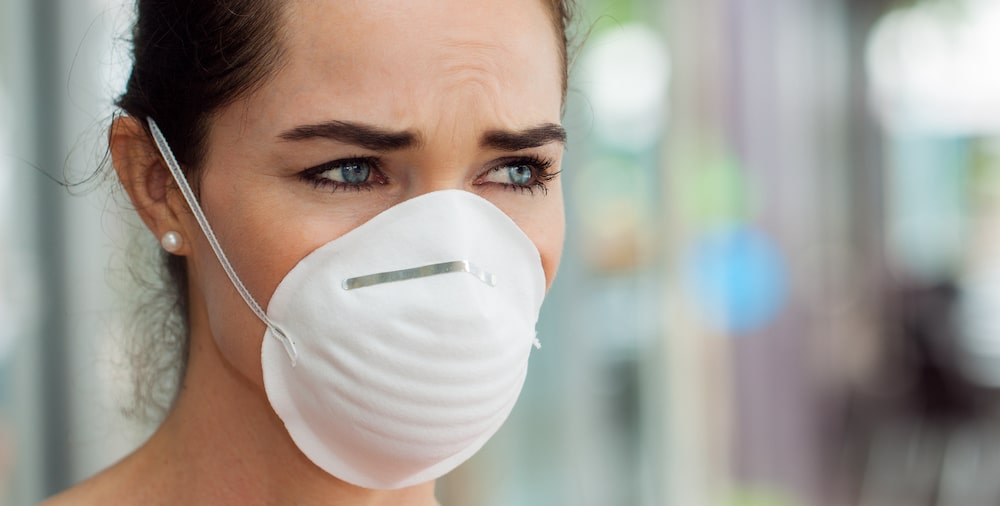
The ongoing coronavirus pandemic has caused many changes in the way medicine is performed as well as made alterations to the personal relationship between doctors and patients. Medical offices are now taking extra steps to protect their patients and staff through the enforcement of social distancing rules, performing extra cleaning of the medical office, limiting the number of patients allowed in the office at one time and requiring the wearing of face masks. The need to wear face masks has been emphasized across the country as a way to protect each other and to prevent passing the virus from one person to another. Even though many people understand the need to wear face masks during cosmetic surgery performed in our current COVID-19 times, a new study shows the face masks worn by doctors can actually impact the level of trust they have towards the doctor.
A study released this month in JAMA Surgery suggests that patients have a more difficult time understanding their surgeon and building trust with the doctor when they are not able to see the entire face of the doctor due to face mask requirements.
The findings of this study looks to have large consequences for the way surgeons are viewed, trusted and rated by patients. In addition, the amount of trust a patient has with their doctor can also determine how well a patient does during a surgical procedure as well as during the healing process after the surgery.
According to Dr. Muneera Kapadia, the senior author of the study, “At beginning of pandemic, I had a patient say, ‘Dr. Kapadia, it’s odd you’ve taken out a big part of my colon and I don’t even know what you look like. It made me realize we don’t have information on how masks are effecting surgeon-patient communication and relationships.”
Dr. Kapadia, an associate professor of surgery at UNC School of Medicine, decided to conduct a study focused on masking protocols. The study specifically studied how the current masking protocols, in place for pre-operative meetings, is impacting the amount of trust patients have with their surgeon as well as their perception of the surgeon. The organizers of the study used clear masks so patients would be able to see the entire face of the surgeon while still following the safety protocols made necessary by COVID-19.
The study was conducted as a randomized chemical trial and it included 200 patients that were recruited from the clinics of 15 surgeons. Out of the surgeons with clinics included in the study, there were seven subspecialties among the doctors. The surgeons taking part in the study were randomized in that some of them wore covered masks and others wore clear masks for each new patient clinic visit.
After the encounter with the doctor at the clinic was over, patients were then instructed to complete a verbal survey that included validated Clinician and Group Consumer Assessment of Healthcare Providers and Systems (CG-CAHPS) questions. There were also some additional questions asked regarding the impression the patients had of the mask worn by the surgeon and the level of surgeon trust and empathy felt by the patient.
According to Ian Kratzke, MD, a resident in the department of Surgery at the UNC School of Medicine, and first author of the study, “When surgeons wore clear masks as opposed to traditional masks, patients rated their surgeon significantly higher in how well they provided an understandable explanation, knew the patient’s history, demonstrated empathy, and built trust.”
The patients in the study reported that they enjoyed improved communication when surgeons wore a clear mask while meeting and chatting with the patient. This study result suggests that not being able to see the face of the surgeon might have a negative impact on the relationship between the patient and the surgeon. It also seems to show that patients prefer being able to see the face of their surgeon during medical appointments and procedures.
While it seems that simply wearing clear face masks during interactions with patients might be the ideal solution to earn their trust, Kapadia noted that the study was more about raising awareness of the issues than finding a concrete solution.
Kapadia said, “Our face is how we connect with other people. We react to people with facial cues, which are being covered by the masks, and that’s having a big impact on communication. We need to be cognizant that patients are having more difficulty connecting with us as providers. I think knowing that before interacting with them will help mitigate the issue by reminding us to spend more time getting to know our patients, and making sure they understand what we are trying to convey.”
- MA